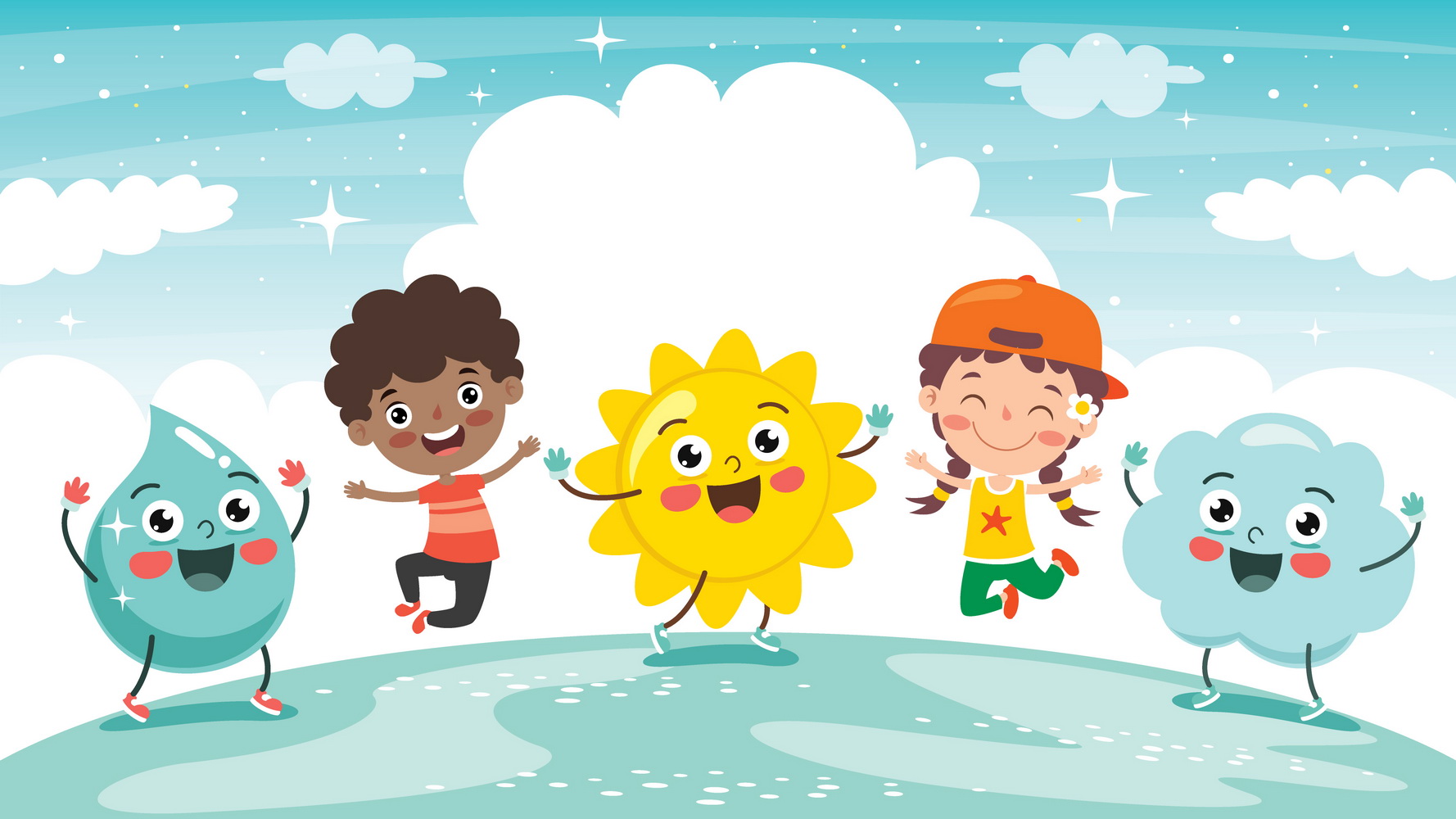Ways In Dealing with Tantrums
Aug. 10, 2021
Going to the mall or eating out might be a problem for parents with a toddler, there will be a lot of chasing, yelling and you cannot keep your eyes out from your child for a minute. But going out is even more difficult for parents with a child who throws tantrums. Tantrums are not just about crying to get and do what they want, this is also the child’s way to get your attention. At times you would just want to give everything just to stop the child from crying, this might help for a minute, an hour, and even for a day, but this will reinforce the behavior and will become an even greater problem in the long run.
In this article, I will be discussing tantrums, what triggers them, and how to deal with them, especially now that we are in a pandemic, children will more likely to throw a tantrum because they will be staying at home more often than before and this is a new routine for them, something they are not used to, and not being able to go outside might put more stress to them as well as to the parents. One of the ways of how to reduce stress for your child is to practice mindfulness both inside and outside of the classroom.

Why Does a Tantrum Happen?
Tantrums are a normal part of development, it happens when the child feels tired, hungry, upset, or frustrated, and if they want something. These are short periods of meltdown or angry outbursts, it usually ranges from crying to yelling, to hitting and sometimes even holding their breath. Tantrums are common to children ages 1-3 years old. Some children will throw tantrums more often than others. Since little children are still developing their language, it is difficult for them to say what they want or if they need anything, and this causes frustration which then causes tantrums. But how is it different if your child already knows how to talk and yet is still throwing tantrums? Remember that tantrum is something that goes away little by little as the child learns to speak, what should we do if the tantrums continue? How the parents manage and react to tantrums is vital for a child to grow out of tantrums.
It is important to be aware of what triggered the meltdown or tantrum, what was the situation when it happened and how long the tantrum lasted or the duration, and how severe the meltdown was. By knowing these things, you will be shocked to know that some tantrums happen in a specific situation with a specific trigger. Having the knowledge of this, it will be easier for a parent to prevent the child from throwing a tantrum by being in control of the situation.
Some causes might be:
- The child is feeling hungry
- Frustration/Stress
- Feeling sick
- Feeling tired
- Wanting to have something (toy/parent/food/show)
- Trying to get parent or guardian’s attention
- Have something taken away from them
- Change of routine
- Does not know how to say the words/unable to express
- Does not understand what to do (when given specific task)
- Wanting to do something they cannot do
- Overstimulated (seeing lots of people, noisy place)

How do to deal with tantrums while it is happening?
When the child is crying out, the parent's automatic response is to hand them what they want or yell at the child, and this might help keep the child from crying, but as mentioned above, it will reinforce the behavior which will make it more likely to happen again in the future. Here are some ways in dealing with tantrums: (1) find the reason for the outburst/tantrum. Once you know what triggered the tantrum, it is best to stay calm and (2) do not give your child attention, keep your eye gaze away from your child, and try not to give in to your child, this will be hard especially that parents usually worry about their child. (3) Do not yell or hit your child and (4) avoid bribing them to stop the outburst (this will act as a reward for them), (5) make sure that your child is not near any sharp or dangerous objects, and is not holding breath and hitting himself/herself or anything if you see your child hitting the floor, hold his hands to resist him/her but keep your eye gaze away. (6) Wait for your child to feel calmer, and (7) use the time-out strategy to give space and make him/her realize what he/she did wrong. Why do we need to ignore it? Ignoring will help the child think that what he/she is doing will not give her/him what they want, instead, they will more likely get tired from crying. By then, you should talk to your child and give them water to drink, then talk.
But what if you were working, or doing chores then suddenly your child started crying, you are trying to figure out what happened since you were not there. With this, try to assess the situation, if your child is trying to tell you that something hurts, he/she will touch the part of the body, and if not, then ignore the outburst and stick with your strategy. Here are some useful strategies on how to manage difficult behavior in your child according to its reason. And what if your kid has ADHD? Then brain-training exercises and games will help them to decrease their impulsiveness that may lead to tantrums.
What if your child had a tantrum outside, maybe while you were in the park, or eating out? It can be embarrassing for parents when the child started throwing tantrums in a public place, and this has happened to me with my students when they were having their graduation ceremony, the best you can do is to stay calm, understand the trigger, get your child to a place where there are less to no people and is safe, let your child have tantrums but keep ignoring them (as long as the tantrum is not an emergency), be sure to check if your child is holding his/her breath, or hurting himself. Then, wait for them to calm down and then talk to your child. Tantrums in public places might make the parents feel angry and embarrassed, and it is normal but always try and communicate with your child to let them know about the situation and their actions.

What to do after the tantrums?
Dealing with the aftermath of the tantrum is just as important as dealing with it while it was happening. But what should we do after the child’s outburst? Here are some ways in dealing with the aftermath:
- Do not yell at your child, this will frustrate them even more. Stay calm and when talking, be sure to have authority with your voice.
- When they stopped crying and are sitting down quietly, make sure to praise the good behavior such as “Good job sitting quietly/Thank you for staying calm and sitting still.” This will make them think that they’ll get your attention if they behave well.
- Communicating with your child is important. Let them know the proper way of asking things without crying or yelling, help them understand the consequences of their behavior.
- Some children have trouble expressing themselves. Comfort your child and let them know that you understand their situation, this is a way so that your child will not feel too bad about themselves, and that they will feel loved and understand.
- Teach a new way of asking for what they want and make sure to praise them whenever they do this
- Have a talk and ask what frustrates them and what is it that they want to talk about with you, maybe something about the game he/she is playing.
- Do not make them feel alone, since tantrums are uncontrollable outbursts and at times, they feel like this is the only way to get their parent’s attention.
It will be fair for a parent to just give in and not talk about it especially when the parent is in a stressful situation and just wanted peace and quiet around the house, but remember that it will be better to have a conversation with your child as to prevent any of this happening in the future. Also, do not underestimate your child's capacity to understand situations. Children may not be able to comprehend complex situations, but they can understand once it is explained to them. Some know that they will get what they want if they started throwing tantrums, and therefore they kept on doing it, and this is also why it is necessary to let them know the consequences of certain behaviors and what should they do if they want to get your attention. In case you still experience difficulties in relations with your kid during online learning, check the article on how to support your kid and increase their loyalty to you as a parent.

How to prevent angry outbursts/tantrums?
It might be difficult for a parent to prevent their child from meltdown and tantrums but it is possible. Here are some ways to help prevent tantrums:
- Teach your child about emotions and how to manage it – help them understand that being angry, frustrated, or sad are all normal and it happens to everyone but there are ways to let someone know you are feeling this way.
- Let your child make decisions by giving options, if they do not like to eat the food, give two or three options. Give them the freedom to decide little things on their own, like the dress they wanted to wear, etc. Growing children would want to do something for themselves, so let them be, but be sure to guide them.
- Do not always force your child into doing something they do not like, better is to give them an option to do something they like and in return doing what they should do. For example, they can still play for 5 minutes but after, they should brush their teeth. This will help them understand that they can still get what they want without getting frustrated.
- Understand your child’s needs, always have open communication with your child.
- Always praise good behaviors, and ignore inappropriate behaviors but make sure to let them know when they did something inappropriate.
- Give your child some space, sometimes your child might really feel frustrated and angry. Help them express these feelings, be your child’s friend too! Let them yell and scream when they feel angry and then talk to them about their emotions.
- Make a schedule or routine for your child to follow, this will help them remember that they need to do certain things at a certain time, but be sure to add some fun with the routine like giving them chance to choose what movie the family should watch in the weekend. This will make them feel like they are part of the decision-making.
- If you realized that your child is having tantrums because of a certain thing or skill that they are not able to do (tying their shoelace, unbuttoning their shirt, etc.) teach them how to do these things. For instance, your child is trying to draw a cat but is unable to, and started crying and ripping the paper, what you need to do is to understand your child’s frustration, and teach them to ask for help when they find something difficult to do. Then go to teaching them the skills that they want to learn. Be patient with your child.
- Teaching your child how to cope with frustrations, if you see your child getting frustrated, ask them what is wrong and wait for them to ask for help, this is a terrific way to let them know that they do not have to cry and scream. Teach your child some things that he/she may do when he/she is feeling out of control (asking for help, playing balls, drawing, etc.).
- Give them challenging tasks, but check whether the child can do the tasks. Some children may get tired of doing the same task every single day, and giving them challenging tasks may provide a meaningful outcome.
- Be a role model, children look up to their parents and they learn through observation.
When to worry about your child’s tantrums?
Remember that tantrums are normal in the child’s development but there are limitations to this, and here are some:
- The tantrum lasts long and happens very often
- Your child hit or hurt people or themselves
- Your child’s tantrums get worse
- Your child is experiencing anxiety (through sudden changes etc.)
- Your child has an illness that may be worsened by tantrums (asthma, headache, stomachache, etc.)
When you suspect that your child’s tantrums are not normal, it is best to check with a specialist.
About the author
Jorezza Antonio - Behavioral Therapist.
Metro Manila, National Capital Region, Philippines.
Links and references
- Tantrums, Better Health Channel Retrieved
- Temper Tantrums, Kids Health, USA Retrieved from https://kidshealth.org/en/parents/tantrums.html
- Temper Tantrums, Cleveland Clinic Retrieved from https://my.clevelandclinic.org/health/articles/14406-temper-tantrums
- Temper Tantrums: Guidelines for Parents and Teachers, National Association of School Psychologist, Miami University, Oxford Retrieved from https://www.nasponline.org/Documents/Resources%20and%20Publications/Handouts/Families%20and%20Educators/Temper_Tantrums_Guidelines_for_Parents_and_Edcuators.pdf
- Toddler Tantrums: Facts and How to Cope Up, NCT, UK Retrieved from https://www.nct.org.uk/baby-toddler/toddler-tantrums-and-tricky-behaviour/toddler-tantrums-facts-and-how-cope
- When to Worry About Toddler Temper Tantrums (2019) John Hopkins All Children’s Hospital Retrieved from https://www.hopkinsallchildrens.org/ACH-News/General-News/When-to-Worry-about-Toddler-Temper-Tantrums












